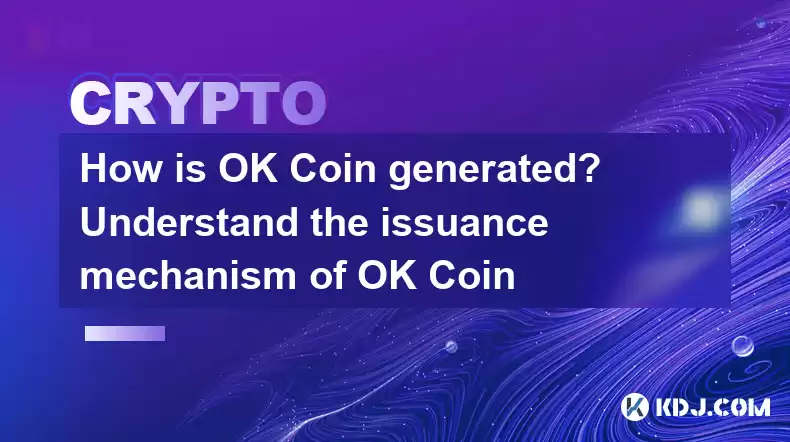-
 Bitcoin
Bitcoin $118900
-2.33% -
 Ethereum
Ethereum $4288
-0.13% -
 XRP
XRP $3.151
-3.21% -
 Tether USDt
Tether USDt $1.000
0.02% -
 BNB
BNB $809.5
-1.17% -
 Solana
Solana $175.7
-4.75% -
 USDC
USDC $0.0000
0.01% -
 Dogecoin
Dogecoin $0.2246
-5.75% -
 TRON
TRON $0.3473
2.19% -
 Cardano
Cardano $0.7809
-5.18% -
 Chainlink
Chainlink $21.38
-3.48% -
 Hyperliquid
Hyperliquid $43.29
-5.53% -
 Stellar
Stellar $0.4375
-3.21% -
 Sui
Sui $3.685
-6.68% -
 Bitcoin Cash
Bitcoin Cash $595.2
3.50% -
 Hedera
Hedera $0.2483
-6.60% -
 Ethena USDe
Ethena USDe $1.001
-0.01% -
 Avalanche
Avalanche $23.03
-5.28% -
 Litecoin
Litecoin $119.5
-5.02% -
 Toncoin
Toncoin $3.395
-0.07% -
 UNUS SED LEO
UNUS SED LEO $9.007
-1.19% -
 Shiba Inu
Shiba Inu $0.00001304
-5.44% -
 Uniswap
Uniswap $11.35
1.57% -
 Polkadot
Polkadot $3.898
-5.43% -
 Cronos
Cronos $0.1671
-0.16% -
 Ethena
Ethena $0.8121
-2.45% -
 Dai
Dai $1.000
0.02% -
 Bitget Token
Bitget Token $4.412
-1.73% -
 Monero
Monero $264.0
-0.64% -
 Pepe
Pepe $0.00001128
-8.12%
How is OK Coin generated? Understand the issuance mechanism of OK Coin
OKCoin is a cryptocurrency exchange, not a cryptocurrency itself; it facilitates trading of existing cryptocurrencies like Bitcoin and Ethereum, earning revenue from trading fees, not coin issuance.
Mar 11, 2025 at 12:28 pm

Key Points:
- OKCoin does not "generate" coins in the same way Bitcoin mines new coins through Proof-of-Work. OKCoin is a cryptocurrency exchange, not a cryptocurrency itself.
- OKCoin facilitates the trading of various cryptocurrencies, including Bitcoin, Ethereum, and others. It does not issue its own native cryptocurrency.
- The cryptocurrencies traded on OKCoin are issued according to the specific protocols of each individual cryptocurrency (e.g., Bitcoin's mining process, Ethereum's staking mechanism).
- OKCoin's revenue model comes from trading fees and other services offered on its platform, not from coin issuance.
How is OKCoin Generated? Understanding the Issuance Mechanism of OKCoin
The question "How is OKCoin generated?" is inherently misleading. OKCoin is not a cryptocurrency; it's a cryptocurrency exchange. Therefore, it doesn't have an "issuance mechanism" in the same way Bitcoin or Ethereum do. It doesn't "generate" coins. Instead, it provides a platform for trading existing cryptocurrencies. Think of it like a stock exchange – it facilitates the buying and selling of stocks, but it doesn't create the stocks themselves.
The cryptocurrencies traded on OKCoin, such as Bitcoin (BTC) and Ethereum (ETH), have their own distinct issuance mechanisms. Bitcoin, for example, uses a Proof-of-Work (PoW) consensus mechanism where miners solve complex computational problems to validate transactions and earn newly minted BTC as a reward. This process is decentralized and governed by the Bitcoin protocol.
Ethereum, on the other hand, primarily utilizes a Proof-of-Stake (PoS) consensus mechanism. In PoS, validators stake their ETH to secure the network and validate transactions, earning rewards in the process. The Ethereum protocol defines the rules for this staking and reward system.
Other cryptocurrencies traded on OKCoin will have their own unique issuance mechanisms, defined by their respective whitepapers and underlying technology. These mechanisms can involve various methods, including:
- Proof-of-Work (PoW): Solving complex mathematical problems to validate transactions and earn new coins.
- Proof-of-Stake (PoS): Staking existing coins to validate transactions and earn rewards.
- Delegated Proof-of-Stake (DPoS): Users elect delegates who validate transactions and earn rewards.
- Other consensus mechanisms: Various other consensus mechanisms exist, each with its own unique approach to coin issuance.
OKCoin itself doesn't generate any of these cryptocurrencies. Its role is to provide a secure and reliable platform for users to buy, sell, and trade these existing digital assets. The platform facilitates transactions, manages order books, and ensures the security of user funds. OKCoin's revenue model is based on charging trading fees, rather than generating its own cryptocurrency. These fees are a percentage of the transaction value and vary depending on the trading pair and volume.
The platform's functionality relies on robust security measures to protect user assets. These measures include:
- Multi-signature wallets: Using multiple keys to authorize transactions, enhancing security.
- Cold storage: Storing the majority of user funds offline to prevent hacking.
- Regular security audits: Employing third-party audits to identify and address vulnerabilities.
- Advanced encryption: Protecting user data and transactions with strong encryption protocols.
Understanding the difference between a cryptocurrency exchange like OKCoin and the cryptocurrencies it lists is crucial. OKCoin is a service provider; it doesn't create the assets it facilitates trading. The generation of cryptocurrencies happens according to the specific rules defined within each cryptocurrency's protocol.
Frequently Asked Questions:
Q: Does OKCoin have its own cryptocurrency?
A: No, OKCoin does not have its own native cryptocurrency. It is a trading platform for various existing cryptocurrencies.
Q: How does OKCoin make money?
A: OKCoin primarily generates revenue through trading fees charged on transactions executed on its platform. They may also offer other services with associated fees.
Q: Is OKCoin involved in the issuance of Bitcoin or Ethereum?
A: No, OKCoin is not involved in the issuance of Bitcoin or any other cryptocurrency. It only facilitates the trading of these assets. The issuance is governed entirely by the individual cryptocurrency's protocol.
Q: How are the cryptocurrencies listed on OKCoin generated?
A: The generation of each cryptocurrency listed on OKCoin is determined by its specific protocol. This could involve Proof-of-Work, Proof-of-Stake, or other consensus mechanisms.
Q: What security measures does OKCoin use?
A: OKCoin employs various security measures, including multi-signature wallets, cold storage, regular security audits, and advanced encryption to protect user assets.
Q: Is OKCoin regulated?
A: The regulatory status of OKCoin varies depending on the jurisdiction. It's important to research the specific regulations in your region concerning cryptocurrency exchanges.
Disclaimer:info@kdj.com
The information provided is not trading advice. kdj.com does not assume any responsibility for any investments made based on the information provided in this article. Cryptocurrencies are highly volatile and it is highly recommended that you invest with caution after thorough research!
If you believe that the content used on this website infringes your copyright, please contact us immediately (info@kdj.com) and we will delete it promptly.
- Dogecoin, Presale, Surge: Riding the Meme Coin Wave
- 2025-08-12 11:10:12
- Dogecoin, Tron, and the ROI Reality Check: What's a Crypto Investor to Do?
- 2025-08-12 11:15:12
- Ethereum Layer-2 Scaling Competition Heats Up as ETH Breaks $4K
- 2025-08-12 10:30:12
- China Regulation, Stablecoins, and BNB Presale: Navigating the Crypto Landscape
- 2025-08-12 11:30:12
- Meme Coins, Investment, and Token Burns: What's Hot in 2025?
- 2025-08-12 10:30:12
- BlockDAG, Chainlink, Hedera: The Cryptos Enterprises are Eyeing
- 2025-08-12 09:30:12
Related knowledge

How to purchase Aragon (ANT)?
Aug 09,2025 at 11:56pm
Understanding Aragon (ANT) and Its PurposeAragon (ANT) is a decentralized governance token that powers the Aragon Network, a platform built on the Eth...

Where to trade Band Protocol (BAND)?
Aug 10,2025 at 11:36pm
Understanding the Role of Private Keys in Cryptocurrency WalletsIn the world of cryptocurrency, a private key is one of the most critical components o...

What is the most secure way to buy Ocean Protocol (OCEAN)?
Aug 10,2025 at 01:01pm
Understanding Ocean Protocol (OCEAN) and Its EcosystemOcean Protocol (OCEAN) is a decentralized data exchange platform built on blockchain technology,...

Where can I buy UMA (UMA)?
Aug 07,2025 at 06:42pm
Understanding UMA and Its Role in Decentralized FinanceUMA (Universal Market Access) is an Ethereum-based decentralized finance (DeFi) protocol design...

How to buy Storj (STORJ) tokens?
Aug 09,2025 at 07:28am
Understanding Storj (STORJ) and Its Role in Decentralized StorageStorj is a decentralized cloud storage platform that leverages blockchain technology ...

Where to find the best price for Audius (AUDIO)?
Aug 11,2025 at 04:01pm
Understanding the Basics of Ethereum StakingEthereum staking refers to the process of locking up ETH tokens to support the security and operations of ...

How to purchase Aragon (ANT)?
Aug 09,2025 at 11:56pm
Understanding Aragon (ANT) and Its PurposeAragon (ANT) is a decentralized governance token that powers the Aragon Network, a platform built on the Eth...

Where to trade Band Protocol (BAND)?
Aug 10,2025 at 11:36pm
Understanding the Role of Private Keys in Cryptocurrency WalletsIn the world of cryptocurrency, a private key is one of the most critical components o...

What is the most secure way to buy Ocean Protocol (OCEAN)?
Aug 10,2025 at 01:01pm
Understanding Ocean Protocol (OCEAN) and Its EcosystemOcean Protocol (OCEAN) is a decentralized data exchange platform built on blockchain technology,...

Where can I buy UMA (UMA)?
Aug 07,2025 at 06:42pm
Understanding UMA and Its Role in Decentralized FinanceUMA (Universal Market Access) is an Ethereum-based decentralized finance (DeFi) protocol design...

How to buy Storj (STORJ) tokens?
Aug 09,2025 at 07:28am
Understanding Storj (STORJ) and Its Role in Decentralized StorageStorj is a decentralized cloud storage platform that leverages blockchain technology ...

Where to find the best price for Audius (AUDIO)?
Aug 11,2025 at 04:01pm
Understanding the Basics of Ethereum StakingEthereum staking refers to the process of locking up ETH tokens to support the security and operations of ...
See all articles

























































































